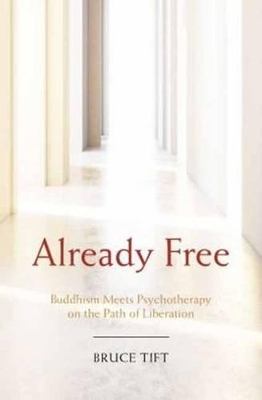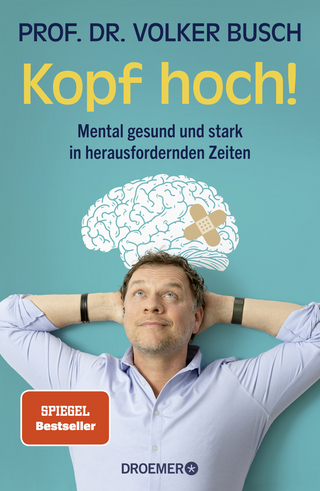
Already Free
Buddhism Meets Psychotherapy on the Path of Liberation
Seiten
2015
Sounds True Inc (Verlag)
978-1-62203-411-6 (ISBN)
Sounds True Inc (Verlag)
978-1-62203-411-6 (ISBN)
Why are more and more psychotherapists embracing meditation practice, while so many Buddhists are exploring psychology? Both psychology and Buddhism seek to provide freedom from suffering, explains Bruce Tift, yet each offers a completely different approach for reaching this goal. In Already Free, Tift opens a fresh and provocative dialogue
Why are more and more psychotherapists embracing meditation practice, while so many Buddhists are exploring psychology? "Both psychology and Buddhism seek to provide freedom from suffering," explains Bruce Tift, "yet each offers a completely different approach for reaching this goal." In Already Free, Tift opens a fresh and provocative dialogue between these two profound perspectives on the human condition.
Tift reveals how psychotherapy’s "Developmental" approach of understanding the way our childhood wounds shape our adult selves both contradicts and supports the "Fruitional" approach of Buddhism, which tells us that the freedom we seek is always available. In this investigation, he uncovers insights for connecting with authentic experience, releasing behaviors that no longer serve us, enhancing our relationships, and more. "When we use the Western and Eastern approaches together," writes Bruce Tift, "they can help us open to all of life—its richness, its disturbances, and its inherent completeness."
Why are more and more psychotherapists embracing meditation practice, while so many Buddhists are exploring psychology? "Both psychology and Buddhism seek to provide freedom from suffering," explains Bruce Tift, "yet each offers a completely different approach for reaching this goal." In Already Free, Tift opens a fresh and provocative dialogue between these two profound perspectives on the human condition.
Tift reveals how psychotherapy’s "Developmental" approach of understanding the way our childhood wounds shape our adult selves both contradicts and supports the "Fruitional" approach of Buddhism, which tells us that the freedom we seek is always available. In this investigation, he uncovers insights for connecting with authentic experience, releasing behaviors that no longer serve us, enhancing our relationships, and more. "When we use the Western and Eastern approaches together," writes Bruce Tift, "they can help us open to all of life—its richness, its disturbances, and its inherent completeness."
Bruce Tift Bruce Tift, MA, LMFT, has been in private practice since 1979, has taught at Naropa University for 25 years, and has given presentations in the US, Mexico, and Japan. A practitioner of Vajrayana Buddhism for more than 35 years, he had the good fortune to be a student of Chogyam Trungpa Rinpoche and to meet a number of realized teachers.
| Verlagsort | Louisville, CO |
|---|---|
| Sprache | englisch |
| Maße | 133 x 203 mm |
| Gewicht | 332 g |
| Themenwelt | Sachbuch/Ratgeber ► Gesundheit / Leben / Psychologie ► Psychologie |
| Geisteswissenschaften ► Psychologie | |
| Geisteswissenschaften ► Religion / Theologie ► Buddhismus | |
| Medizin / Pharmazie ► Medizinische Fachgebiete ► Psychiatrie / Psychotherapie | |
| Sozialwissenschaften ► Soziologie | |
| ISBN-10 | 1-62203-411-2 / 1622034112 |
| ISBN-13 | 978-1-62203-411-6 / 9781622034116 |
| Zustand | Neuware |
| Haben Sie eine Frage zum Produkt? |
Mehr entdecken
aus dem Bereich
aus dem Bereich
Buch | Softcover (2021)
Kohlhammer (Verlag)
CHF 39,95
mental gesund und stark in herausfordernden Zeiten
Buch | Hardcover (2024)
Droemer (Verlag)
CHF 27,95
der Leitfaden für die Praxis der Akzeptanz- und Commitment-Therapie
Buch (2023)
Arbor (Verlag)
CHF 49,90


